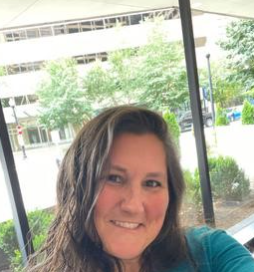Prices
About
Course Description
Intended Audience
Mental Health Clinicians and anyone currently practicing EMDR therapy (psychologists, counselors, social workers, etc.). This course is appropriate for post-doctoral graduates and clinicians with advanced knowledge of various therapeutic treatment modalities and theoretical orientations.
Only EMDR trained clinicians can obtain EMDRIA Credits.
EMDRIA and CE's credits
3 EMDRIA Credits (Included in course price). CE credits are not offered for this course at this time. Please click here to see the CE information and instructions on how to obtain your CE credits/certificates of attendance)
Skill Level of Audience
Intermediate/Advance
Course Outline
Learning Objectives
Describe 2 ways to differentiate dissociative symptoms from other disorders in children and teens.
Identify 2 strategies that work effectively with angry and hostile self-states to resolve traumatic experiences and reduce violent behaviors.
Describe 2 ways to integrate somatic and sensory resources to decrease dissociative episodes in and out of the therapy room during treatment.

Annie Monaco, LCSW-R, RPTS
Registered Play Therapist, Member of the Association for Play Therapy, EMDR International Association (EMDRIA), Child Trauma Institute and Trauma Institute.
Annie Monaco is a New York State Licensed Clinical Social Worker, Registered Play Therapist and a faculty member of the Child Trauma Institute & Trauma Institute. Annie travels throughout the US and internationally providing a multitude of trauma-informed trainings and agency and therapist consultation. Annie is an EMDRIA approved trainer of EMDR, Progressive Counting and STAR (Strategies for Trauma Awareness and Resiliency). Annie provides specialty trainings on attachment, dissociation, and EMDR with children & teens. Annie is the co-editor and contributor of chapters for EMDR with Children in the Play Therapy Room, an integrated approach (2020).
Annie Monaco is a New York State Licensed Clinical Social Worker, Registered Play Therapist and a faculty member of the Child Trauma Institute & Trauma Institute. Annie travels throughout the US and internationally providing a multitude of trauma-informed trainings and agency and therapist consultation. Annie is an EMDRIA approved trainer of EMDR, Progressive Counting and STAR (Strategies for Trauma Awareness and Resiliency). Annie provides specialty trainings on attachment, dissociation, and EMDR with children & teens. Annie is the co-editor and contributor of chapters for EMDR with Children in the Play Therapy Room, an integrated approach (2020).

Danyale Weems, LCSW, RPTS
Waves Counseling Services, LLC, Registered Play Therapist Supervisor, Trauma Focused Cognitive Behavioral Therapy, Licensed Clinical Social Worker, EMDR International Association (EMDRIA).
Danyale Weems owns a private group practice in rural Georgia where she specializes in treating children, adolescents, and adults with trauma and neurodevelopment disorders. She has over 18+ years of experience. She is a Licensed Clinical Social Worker (LCSW), Registered Play Therapist Supervisor (RPTS), AutPlay Certified, nationally certified in Trauma Focused Cognitive Behavioral Therapy (TF-CBT) and certified in Eye Movement Desensitization and Reprocessing (EMDR). She is currently a Consultant in Training for EMDR. She has presented for the GA NASW, GA LPCA, AL Play Therapy State Conference, University of West Georgia and other local agencies
Danyale Weems owns a private group practice in rural Georgia where she specializes in treating children, adolescents, and adults with trauma and neurodevelopment disorders. She has over 18+ years of experience. She is a Licensed Clinical Social Worker (LCSW), Registered Play Therapist Supervisor (RPTS), AutPlay Certified, nationally certified in Trauma Focused Cognitive Behavioral Therapy (TF-CBT) and certified in Eye Movement Desensitization and Reprocessing (EMDR). She is currently a Consultant in Training for EMDR. She has presented for the GA NASW, GA LPCA, AL Play Therapy State Conference, University of West Georgia and other local agencies
Frequently asked questions
Cancelations
There are no cancelations/refunds for any distance learning courses.
Grievances
All grievances must be in writing to associate@emdrhap.org and will be replied to within 5 - 10 business days.
Trademark Restrictions Purchasing / Showing content to others
** Please note** this distance learning course was given ownership from the presenters, Annie Monaco & Danyale Weems, to Trauma Recovery/HAP and it cannot be used for resale and only should be viewed by the purchaser.
** HIPAA Regulations: Please note that this course may contain protected health information (PHI). Any unauthorized use or disclosure of this PHI is strictly prohibited, this includes recording and/or reproducing any part of this training video. This video presentation contains videos of clients and case discussions. The presenter has received permission to use the videos to assist in the education and training of clinical professionals who must comply with confidentiality standards.
** HIPAA Regulations: Please note that this course may contain protected health information (PHI). Any unauthorized use or disclosure of this PHI is strictly prohibited, this includes recording and/or reproducing any part of this training video. This video presentation contains videos of clients and case discussions. The presenter has received permission to use the videos to assist in the education and training of clinical professionals who must comply with confidentiality standards.
ADA assistance
Facilities used by Trauma Recovery/HAP for in-person training events are ADA compliant. Should you need any special accommodations (ADA) for an in-person training event, please contact Trauma Recovery/HAP staff at info@emdrhap.org at least 10 business days prior to the start of the training event. On-demand courses with videos offer closed captioning. If you encounter any inaccuracies or synchronization issues with the closed captioning, please contact associate@emdrhap.org.
How to obtain your credits/certificates
Certificates are awarded online after completion of the workshop. To receive your EMDRIA credits complete the entire course and complete the post-test, then print your certificate. For CE credits, participants print their own certificate after registering at CE-Classes.com, entering a keycode, and completing an evaluation form. Click here to know more.
Please forward a copy of your confirmation email or receipt to associate@emdrhap.org and you will receive a reply with instructions on how to access the learning assessment and certificate. Please make sure the receipt has the course title on it or write it in the forwarded email.***Please note, due to a high level of requests, it may take 1-5 business days to receive a reply. If you do not receive a reply within the 5 day time period, please call the HAP office***Only one recipient per course purchase will be given CE’s. Multiple CE’s will not be given to groups who purchase one course viewing.
• CE-Classes.com is the provider of CEs.
• Licensed Professionals should contact their regulatory board to determine course approval.
• There is no known commercial support or conflicts of interest for this workshop.
Please forward a copy of your confirmation email or receipt to associate@emdrhap.org and you will receive a reply with instructions on how to access the learning assessment and certificate. Please make sure the receipt has the course title on it or write it in the forwarded email.***Please note, due to a high level of requests, it may take 1-5 business days to receive a reply. If you do not receive a reply within the 5 day time period, please call the HAP office***Only one recipient per course purchase will be given CE’s. Multiple CE’s will not be given to groups who purchase one course viewing.
• CE-Classes.com is the provider of CEs.
• Licensed Professionals should contact their regulatory board to determine course approval.
• There is no known commercial support or conflicts of interest for this workshop.

